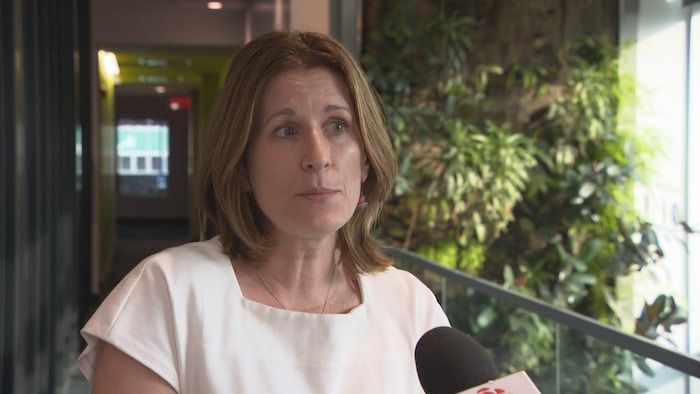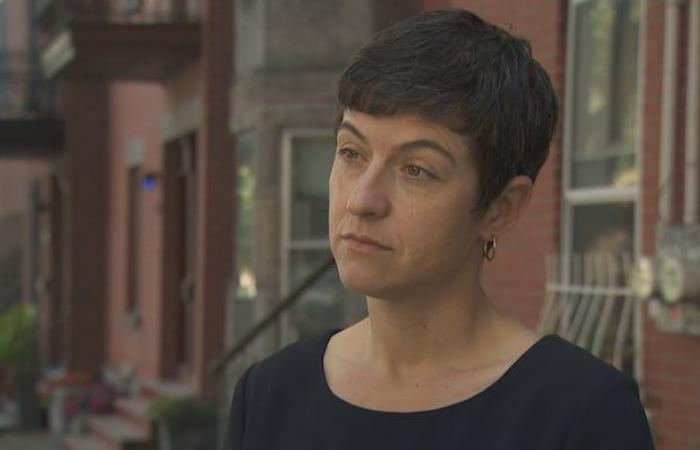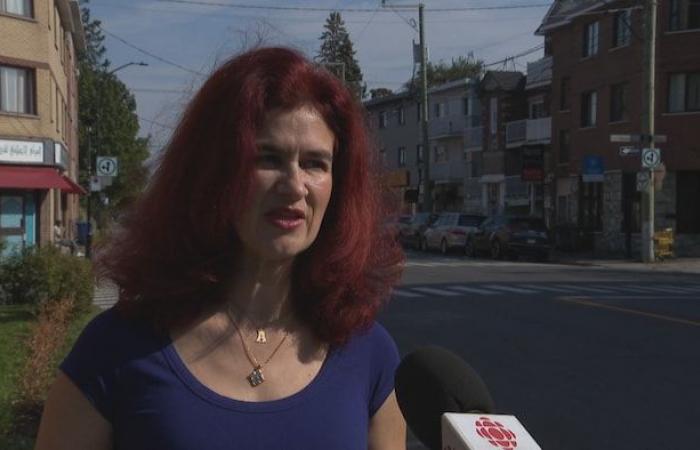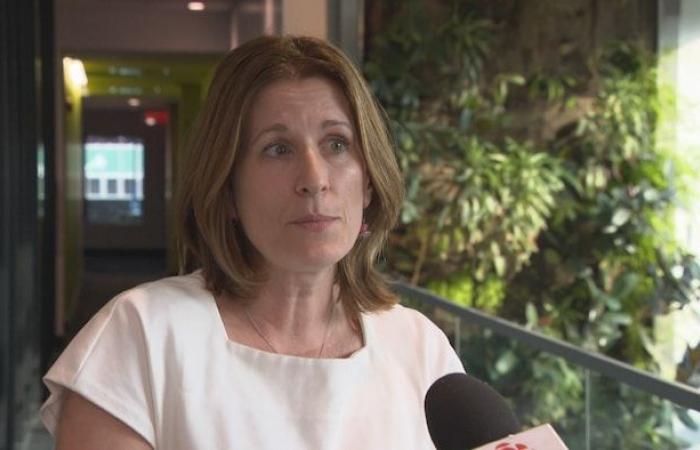While anti-immigration rhetoric often makes headlines in the United States and Europe, the phenomenon also seems to have spread to Canada, where the provinces and a segment of the population are calling for a reduction in immigration thresholds. However, three experts are concerned about the growing politicization of immigration issues in the country.
This reflects a global trend. Political parties blame immigration for issues related to the housing crisis, unemployment rates and insecurity.
explains Mireille Paquette, associate professor in the political science department at Concordia University.
It has become a strategy to gain political capital and to distinguish oneself from other parties. I am not surprised that we see this dynamic [au Canada]
continues the immigration policy specialist.
In the country, provincial premiers recently joined forces to denounce the federal government’s immigration policy, judging it to be too lax.
Open in full screen mode
Mireille Paquette, associate professor in the Department of Political Science at Concordia University
Photo: Radio-Canada
Quebec Premier François Legault also said that he hopes that Justin Trudeau’s Liberal government will be overthrown because of the increase in immigration in his province.
South of the border, Republican presidential candidate Donald Trump has not hesitated to put forward his rhetoric targeting migrants, whom he blames for the ills of American society, and sometimes even describes them as barbaric criminals
And assassins and terrorists
.
Then in Europe, parties with anti-immigration ideology are gaining more ground in elections. For example, in Germany, a far-right party won a large majority in a regional election earlier this month.
This ambient political discourse
worries Adina Ungureanu, deputy general director of the Collective of Immigrant Women of Quebec. We are trying to find a scapegoat for the crises that society is experiencing, such as the lack of housing, the lack of teachers, the lack of infrastructure.
she believes.
Reception requires “better organization”
For Mireille Paquette, the federal government’s decision to increase its immigration targets in the past was explained by the decline in the country’s population, as well as the need for short-term labour.
Moreover, the challenges of maintaining public services and contributing to public finances through taxes
There are still arguments in favor of immigration, the professor emphasizes.
[Mais] It is possible that there was not enough cross-functional planning, that is, ensuring that all services to the population were maintained.
As for the governments, both provincial and federal, they should have asked themselves preliminary questions before enacting their policies, maintains Ms. Ungureanu. What are the needs? In what areas do we need workers? How are we going to integrate them? This must be thought about before we proceed.
Open in full screen mode
Adina Ungureanu, Deputy Director General of the Quebec Immigrant Women’s Collective
Photo: Radio-Canada
At the federal level, many, many permits were issued, because all the provinces were complaining about the lack of manpower. But [après la pandémie]many people have decided to return to the job market because of inflation
she continues.
The fact that there is currently a frost [de l’immigration] I am not surprised, because now the job market is not the same as it was two years ago.
agrees Ms. Ungureanu.
Despite the fact that the labour shortage has eased in recent years, it continues to be prevalent in certain fields that are mostly poorly paid, where working conditions are very difficult and where it is more difficult to recruit, underlines France-Isabelle Langlois, Executive Director of Amnesty International Canada Francophone.
Employers still need temporary workers. So it’s as if we’re not addressing the issue head on.
While the latter recognises that the significant influx of new arrivals is putting pressure on social services, the solution would be found, according to her, through better organisation and close work with civil organisations which are on the front line.
The public authorities would have every interest in working with these organisations.
she demands.

Open in full screen mode
France-Isabelle Langlois, Executive Director of Amnesty International Canada Francophone
Photo: Radio-Canada
While many people blame immigration for the lack of services, Ms. Langlois is keen to point out that problems with housing, education and health also come from the fact that governments have disinvested in these sectors for several decades
.
From the moment that leaders allow themselves to deviate, it opens the door to trends that are alarming, that are worrying.
she believes.
For her part, Mireille Paquette is keen to point out that anti-immigration discourse can certainly cause problems, but also discomfort among people from immigrant backgrounds.
For some temporary workers, tightening immigration policies is already making them feel worse
she maintains.
According to her, anti-immigration discourses have an impact on the way citizens perceive immigration. It raises concerns even in people who wouldn’t think about it on a day-to-day basis.
while aggravating the stereotypes conveyed, she warns.
With information from Charlotte Dumoulin








